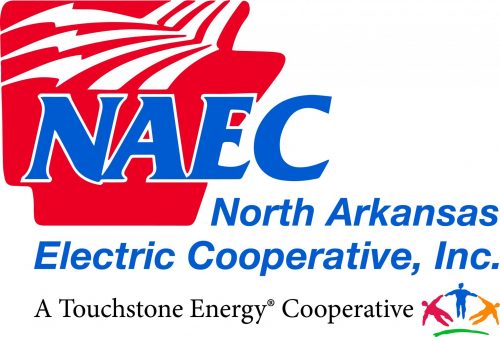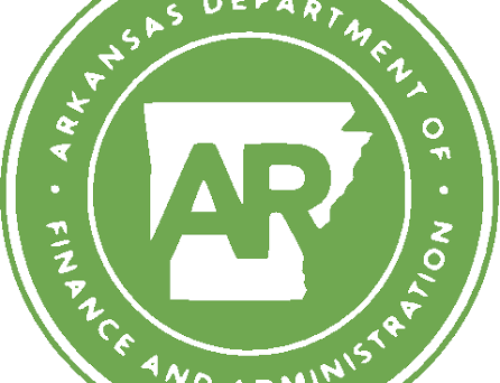Rate increases for members of North Arkansas Electric Cooperative (NAEC) are set to be reviewed by the Arkansas Public Service Commission and members could see an increase to their bills in excess of 10 percent.
NAEC CEO Mel Coleman said an increase is not something the cooperative wants to do, but must do in order to stay withing state and federal regulatory guidelines.
“Everybody needs to understand I don’t like the rate increase at all. It is something that unfortunately we’ve had to do for the history of the co-op every now and then, you have to have a rate increase because it is member owned..,” Coleman said. “If you look at the facts, we have our auditors, rate consultants and our Rural Utility Services (RUS) which is an agency of the federal government formerly REA (Rural Electrification Administration). Our rate analysts and rate auditors gave us the independent recommendation that it was time for a rate increase. RUS sets metrics for the co-op. RUS is lender and regulator that we cannot violate, and North Arkansas is within a year or so of violating those metrics if not this year. So it was time.”
Coleman explained that between 2020 and 2023, consumers experienced an increase in prices that continues to rise but that it is not singular to consumers as providers are experiencing the rise in costs as well.
“If I look at one of the biggest drivers. Unfortunately, we all lived though that 2020-to-2023-time frame, we’ve seen since our last rate adjustment a 23 percent increase in cost of living. To us that equates to a 23 percent increase in material costs, labor, a 23 percent increase average in contractor labor. So, across the board, this 23 percent increase that we’ve all suffered through the prices at the store of clothing. That’s affected us as well,” Coleman said. “Right of Way is a huge expense for us. This year alone we’ll spend about $5 million in right of way. That comes right off the bottom line.
Every survey we do with our members, reliability is #1. they don’t want the lights going out. Right of Way is a big driver of reliability and the new substations we’re putting in. We just put one online last month. All of that is reliability but it costs money. I remember just a few years ago right of way was $1.5 to $1.7 million, now it’s $5 million.”
He also noted not all of the increase would be going to NAEC, but some of the increase in price members pay for power is passed through the cooperative.
“In this adjustment there are two parts to it as well. There is a 9.4% increase that actually is a NAEC rate adjustment, now compare that to the 23 percent inflation that we have seen. So, I think we’ve done a good job to pair this down instead of a large 23 percent adjustment, it’s 9.4% and I get it that is still big. I don’t like it, but we have to cover our expenses since we are a non-profit cooperative,” Coleman said. “There is also a wholesale component and happens every few years as well, that does not go to us but is passed through on our rates. That is about three percent.”
Coleman said additional factors such as the upcoming closure of two major energy provider plants in Arkansas also plays a role in price.
“If you think back to the attacks, we’ve had on our coal fire generating plants over the years and there have been several. We’ve got two huge coal fire plants, one in Newark that is shutting down in 2028.
Another one around pine bluff in 2030 so we’ve had an attack on our most inexpensive form of energy generation. Those plants are shutting down,” Coleman said. “So what do we have to replace that with? More expensive generation. Natural gas is so subject to market changes and market conditions. I’ll give an example: the cold spells we went through in 2021, 2022 and even now will send gas prices off the charts. Those plants that remain and the majority of our generation now is natural gas. So, what happens then is you see another component of the members bill called the power cost adjustment and it goes sky high. That goes through us, to the generation station owners to pay for the natural gas. So you have multiple problems, impacts on the electric bill that effects our members.”
Coleman said the increase has not yet been approved, and must be approved by the Public Service Commission per Arkansas law.
“The increase we’re talking about doesn’t take effect until the Public Service Commission gives final approval. They are our regulators in the state. They put the guidelines on what we do, Arkansas law puts guidelines on the Act 821 rate increase. All of that is governed by the Arkansas Public Service Commission, based on Arkansas law, through the legislature. And it wont’ go in to effect until either May or June,” Coleman said.
Following conversation sparked on Social Media regarding the upcoming rate increase, Coleman addressed certain member concerns including annual meetings and the board.
What was previously a celebration of members and the progress of the cooperative was forced to pause as a result of Covid, however; Coleman said the annual member meeting still takes place, but in different form.
“We do have an annual meeting, but it is just the business meeting (now). That is what the bylaws call for. It (the previous format) was a lot of fun, but it was also a very expensive meeting.. We still have a meeting, but without all of the pomp and circumstance and what we used to have,” Coleman said. “As for the board, every cooperative across the United States, and there are about 950 of them, get a per diem. They get a per diem for their work and if you serve on most any board, a bank board, a cooperative, you’re going to get a per deim for your work invested. They’re responsible and I’m responsible for a $300 million organization. They have to be well trained, I have to be well trained.”
Coleman also noted the board’s per diem is on par with the average rate paid to board members at other rural cooperatives.
When asked if NAEC was still a not for profit organization, Coleman said there had been some designation changes when the cooperative launched NEXT, but the cooperative does remain a non-profit.
“We are a not for profit, taxable entity. The sole reason we are is because of this highly successful, and the best thing we’ve done since the REA Act of 1934 when electricity first came to Arkansas a few years after that. The best thing we’ve done since the lights came on was do NEXT and bring the internet to rural America that nobody was going to do but the co-ops. What that does to us is A: we wanted to provide a service but B: a for profit NEXT we wanted it to make money, but guess what, that goes right back to the members,” Coleman said. “This is where it gets deep. You have to look at the IRS guidelines. We have what is called an 85/15 rule and 15 percent of our revenues, if you go over 15 percent of our revenues, from non-electric income we’re in violation of that. We didn’t want to be in violation so we did what many other co-ops have done and are doing that have fiber internet subsidiaries and we converted to taxable.”
Coleman said the transition was seamless for members, leaving NAEC a non-profit organization, while bolstering revenue which is turned back to members.
“It is still a non-profit co-op. All of the profits from NEXT flow over to the co-op in one form or another. At the end of the day, that is still assigned to a member account and periodically annually, we return patronage just like we always have and we’ve sent $28 million in cash or bill credits for smaller amounts back to the members in the last 10 years,” Coleman said. “That does not change. This was just a paperwork requirement based on our subsidiary NEXT and the amount of money it could generate for the members over the years. We are a non-profit just like we’ve always been and member driven just like we’ve always been, but now, we’re taxable.”
Coleman also said at this time, the rate increase will not effect NEXT or its rates at this time.
“Obviously the internet service like any service or any goods or services is going to have increases over time, but not with this. This is not going to effect NEXT services, this is only for member services,” Coleman said.
Ultimately, NAEC exists by members for members and Coleman reiterated his feelings on the rate increase, stating it was an unfortunate necessity.
“A rate increase does not make me happy at all and fully understand members have a hard time paying their bills. That is the first thing on the mind of every employee at this co-op but at the end of the day, as owners of the co-op, it has to be financially strong to continue to exist. We don’t have any choice but to maintain a financially healthy co-op. We can’t go to Wall Street and take it from stockholders because we don’t have stockholders, we have members and we’re proud we have members,” Coleman said. “We’re here for the members. We’re here to provide electricity in an area where nobody wanted to provide electricity even just 75, 80 years ago nobody wanted to do that. That’s why we’re here, that’s why NEXT is here. That’s why we did next because nobody was going to provide internet service to this area.”
Lauren is a an award-winning journalist who decided after 10 years of newspaper experience to venture out. Hallmark Times was born.






